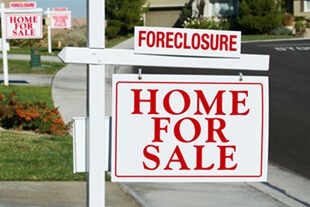Myths & Realities of a Reverse Mortgage
As with many financial products, reverse mortgage loans can be complicated and there may be a number of misconceptions about how the product works. Do you know the myths vs. the realities?
MYTH 1:
The lender owns the home.
You will retain the title and ownership during the life of the loan, and you can sell your home at any time (at which time the loan becomes due and payable). The loan will not become due and subject to repayment as long as you continue to meet loan obligations such as living in the home as your primary residence, maintaining the home according to the Federal Housing Administration (FHA) requirements, and paying property taxes and homeowners insurance.1
MYTH 2:
Once loan proceeds are received, you pay taxes on them.
Generally, money received is not considered income and should be tax free, though you must continue to pay required property taxes. Consult your financial advisor and appropriate government agencies for any effect on taxes or government benefits.
MYTH 3:
The home must be free and clear of any existing mortgages.
Actually, many borrowers use the reverse mortgage loan to pay off an existing mortgage and eliminate monthly mortgage payments.1
MYTH 4:
The borrower is restricted on how to use the loan proceeds.
Once any existing mortgage or lien has been paid off, the net loan proceeds from your reverse mortgage loan can be used for any reason. Many borrowers use it to supplement their retirement income, delay receiving social security benefits, pay off debt, pay for medical expenses, remodel their home, or help their adult children. You have worked hard for this asset and prudence along with budgeting should be the proper approach to enjoying proceeds received from your reverse mortgage loan.
MYTH 5:
Only poor people need reverse mortgages.
The perception of the reverse mortgage as an assist for the “poor” borrower is changing — many affluent senior borrowers with multi-million dollar homes and healthy retirement assets are using reverse mortgage loans as part of their financial and estate planning, and are working closely in conjunction with financial professionals and estate attorneys to enhance the overall quality and enjoyment of life.
1. Your current mortgage(s) and any other existing liens against the property must be paid off at or before closing. You must live in the home as your primary residence, continue to pay required property taxes, homeowners insurance, and maintain the home according to FHA requirements. Failure to meet these requirements can trigger a loan default that may result in foreclosure.
This material is not provided by, nor was it approved by the Department of Housing & Urban Development (HUD) or by the Federal Housing Administration (FHA). LIB-W-013019-C | Rev. 01/30/19
Questions? Contact us now!

